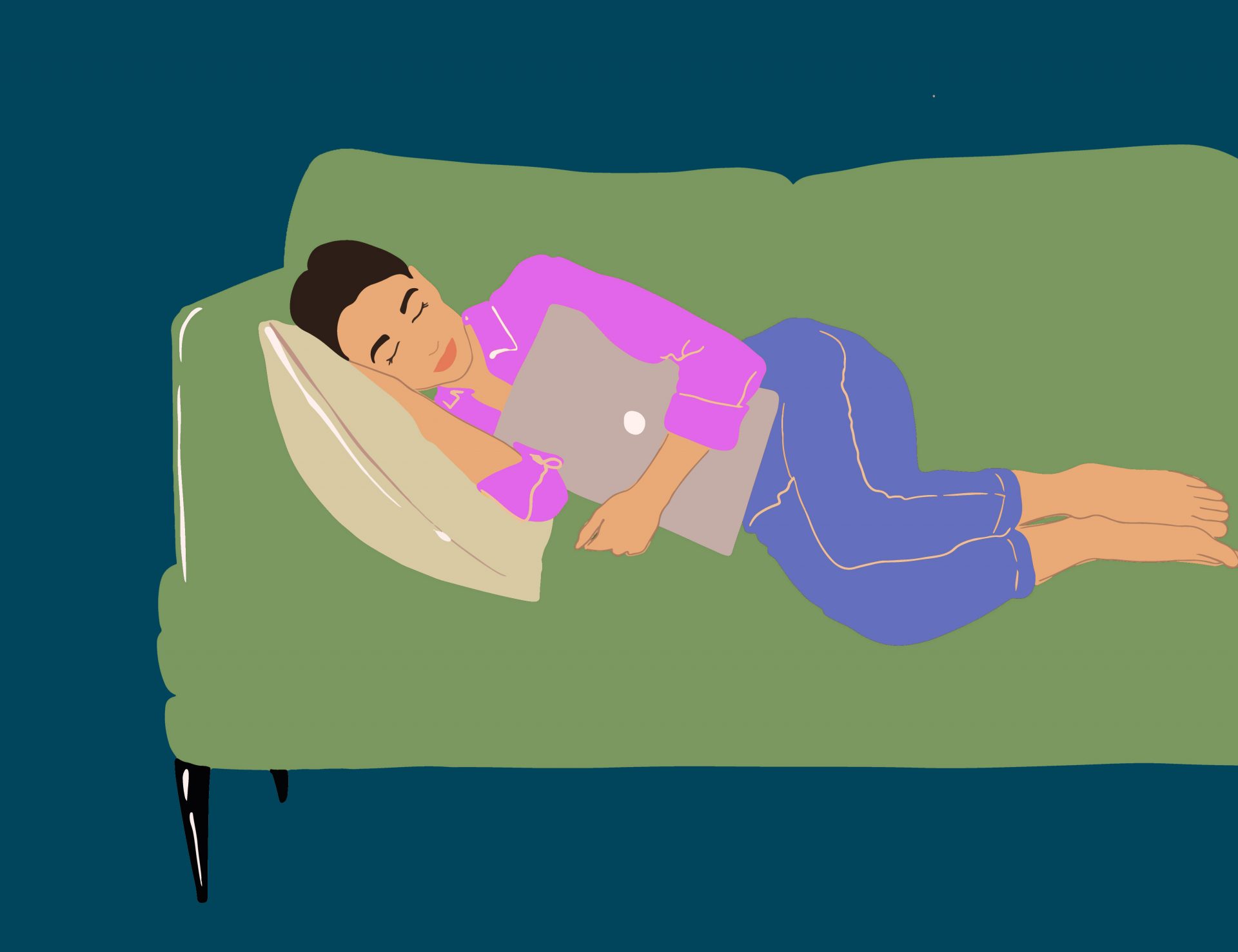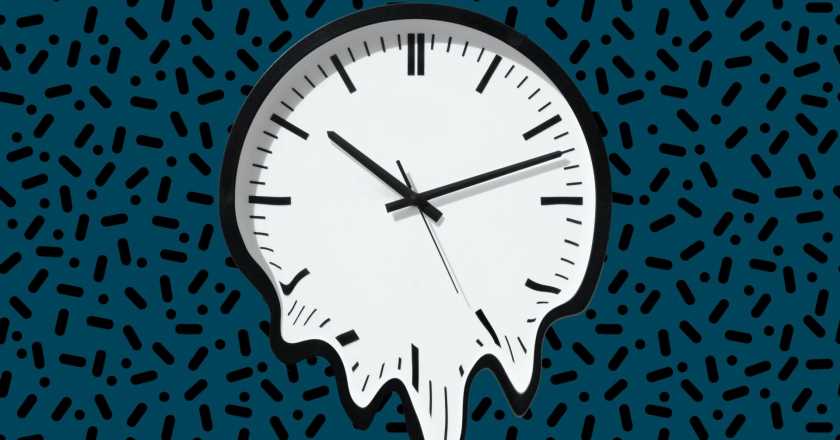Energy levels a bit off? It might be a clock dysfunction – these are the signs (and how to fix it)
Are you in a state of clock dysfunction? Coach and nutritionist Karina Antram reveals the signs – and how to fix it.
Tick, tock. Tick… tock. Tick, tick, tock. Is that the sound of your body clock being a bit… off?
When your energy levels feel erratic (anyone else wide awake at 3am then falling asleep on the sofa at 6pm?), all you want to know is why. And how to get things back to normal.
Sometimes, the cause is pretty obvious. You’ve had coffee too late in the day. You had a late night at the weekend and still feel like you’re catching up on sleep. You’re stressed out at work and can’t seem to make your brain be quiet. But other times, it feels completely random, which is even more infuriating.
A ‘clock dysfunction’ might be to blame. And no, we’re not talking about the clock on your phone having a meltdown.
What is clock dysfunction?
“Clock dysfunction is when our internal clocks are out of sync,” explains Karina Antram, coach, nutritionist and author of Fix Your Fatigue. “We have clocks that dictate our mood, energy and sleep. Our PER 3 gene length determines our chronotype and whether we are a ‘morningness’ chronotype (an ‘early bird’) or ‘eveningness’ chronotype (a ‘night owl’). When we start operating outside of our natural genetic chronotype it can cause energy problems.”
In basic terms, if we do anything to disrupt the timings of our body’s inclinations, we can cause issues down the line. That means being awake when your body naturally wants to sleep, working hard when your mind wants rest, blaring bright light in the evening, eating at the wrong time, anything that doesn’t fit in with what your internal clock is crying out for.
Antram explains: “There are many reasons for clock dysfunction. Some we have control over, like how much electric light we are exposed to, how often we travel or how much screen time we have. Others can be more difficult, such as if your job involves working late nights and your chronotype is an early bird, then you may start to experience circadian misalignment.”

Signs and symptoms of clock dysfunction
Some signs that you’ve fallen into clock dysfunction include: changes in mood, exhaustion, extreme daytime sleepiness, decreased alertness and problems with memory and decision-making. “The signs people experience will differ from person to person,” notes Antram, but in short: if you’re feeling a bit off your game, clock dysfunction might be to blame.
So, how do we fix it?
How to fix clock dysfunction
Stick to regular sleep and wake-up times
Yes, you really should have a bedtime. And yes, you should wake up at the same time every day… even on weekends.
“The quickest and easiest way to rectify your clock is by sticking to regular sleep/wake times as much as you can,” Antram says.
Don’t force yourself to stay awake
On that note, quit staying up when you’re tired. If your body wants to go to sleep, do it. Don’t try to ‘push through’ the tiredness and stay out for one more drink.
“Discipline can be really hard, especially if you want to enjoy your evening after a tough day at work or catch up on your favourite Netflix series,” says Antram, “but the more you align yourself to your natural clock, the more energy you will have. So have the willpower to go to bed as soon as you are tired.”
You may also like
How to rest: this 3-step technique will help you to switch off
Check your dinner time
“Give your microbiome a break,” Antram recommends. “Digestive rest is important as it allows your body to focus on preparing your body for sleep. If you eat a heavy meal late at night, with high thermic effect foods, which are harder to digest and absorb such as processed food, then your body will focus on digestion rather than sleep, impacting the quality and quantity of your night’s kip.
“Choosing your last meal of the day carefully and ideally eating no later than 8pm to allow sufficient time for digestion will really help maximise the quality of your sleep, improving your energy for the following day. A 12-hour digestive break from the moment you eat your last meal to breakfast the next day is ideal.”
Tune into the natural light
Exposure to sunlight helps your body clock figure out what’s going on. When you wake up, open the curtains and let the light flood in. Try to have a walk outside during the day. Keep your blinds up while you work, rather than relying entirely on artificial light. And in the evening, wind things down, light-wise. Limit screen time, swap to cosy lamps, and if you absolutely have to use your phone, turn it to night mode.
Clear your mind pre-bed
Always find your mind racing when it’s time to snooze? Doing a brain dump can help.
“Try to declutter your mind before bed by noting down any of the day’s frustrations, worries or actions,” Antram suggests. “What can you forget about, what can you action quickly now and what do you need to focus on tomorrow?”
Get your sleep hygiene in shape
“Focus on developing really good sleep hygiene habits,” Antram says. It’s not only about how much you sleep or when you rest, the quality of your sleep matters, too.
Make sure your bed is super comfy, that your bedroom is quiet (or you’re using something like pink noise to block out any outside sounds), that you wind-down before bed, and that you’re limiting disruptions by putting your phone in a drawer or turning it off.
Fix Your Fatigue: 5 Steps To Regaining Your Energy by Karina Antram is out now.
Main image: Getty; Stylist
Source: Read Full Article
